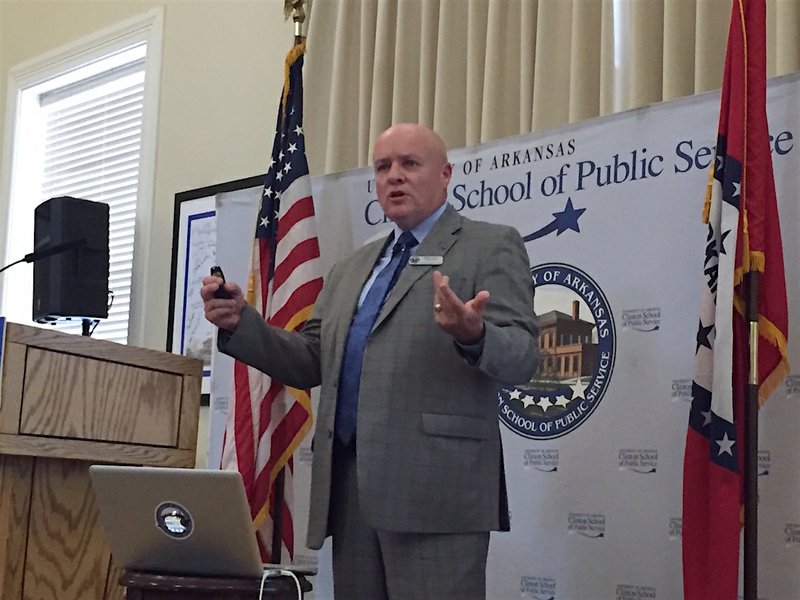Days after officially taking the title, Little Rock Superintendent Michael Poore on Tuesday outlined how the district can work to solve some of what he called its most troubling inefficiencies.
Among his musts for the Little Rock School District: an increased emphasis on a bright spot — early childhood development — and “setting the stage” in middle school for students to be successful in postsecondary education.
"This early jump-start in terms of preschool is really critical, and this is going to be really one of the first things that is shared in terms of policy," Poore told a full room at the Clinton School of Public Service, referencing the expansion of what he said is an already successful program.
The need for improvement in middle school, Poore said, comes as the district is losing students in that age group to public charter and private schools in Little Rock.
"This is one of the sorest spots that we have in the Little Rock schools," Poore said of the middle school environment and the perception of public schools no longer being a "shiny penny."
Meanwhile, middle school academic growth has actually improved in the district, he said.
Poore said Little Rock district schools must challenge students and the community to work together on initiatives such as project-based learning with companies.
Real-world skill sets gleaned from community-minded projects would allow students to feel more valued and prepared for adulthood, he told attendees.
At the high school level, Poore said, the district must focus on graduation rates, which dropped in the last year — 73.6 percent in 2015 compared with 78.3 percent in 2014.
"It's not a good stat, but it's a baseline point of information," he said, referring to the data as a "call to action."
Outside of the classroom, the district must examine next steps financially after losing $35 million in desegregation funding, Poore said, adding that additional changes are needed to "live within our means."
Read Wednesday’s Arkansas Democrat-Gazette for full details.
